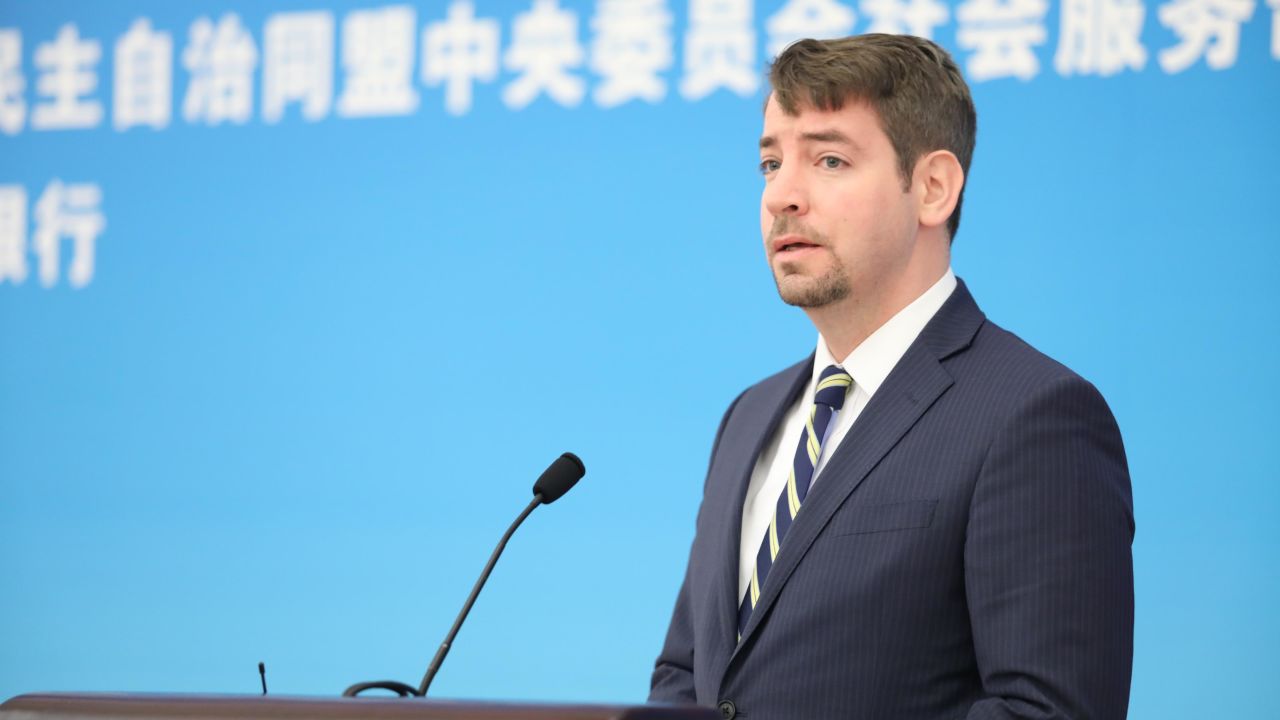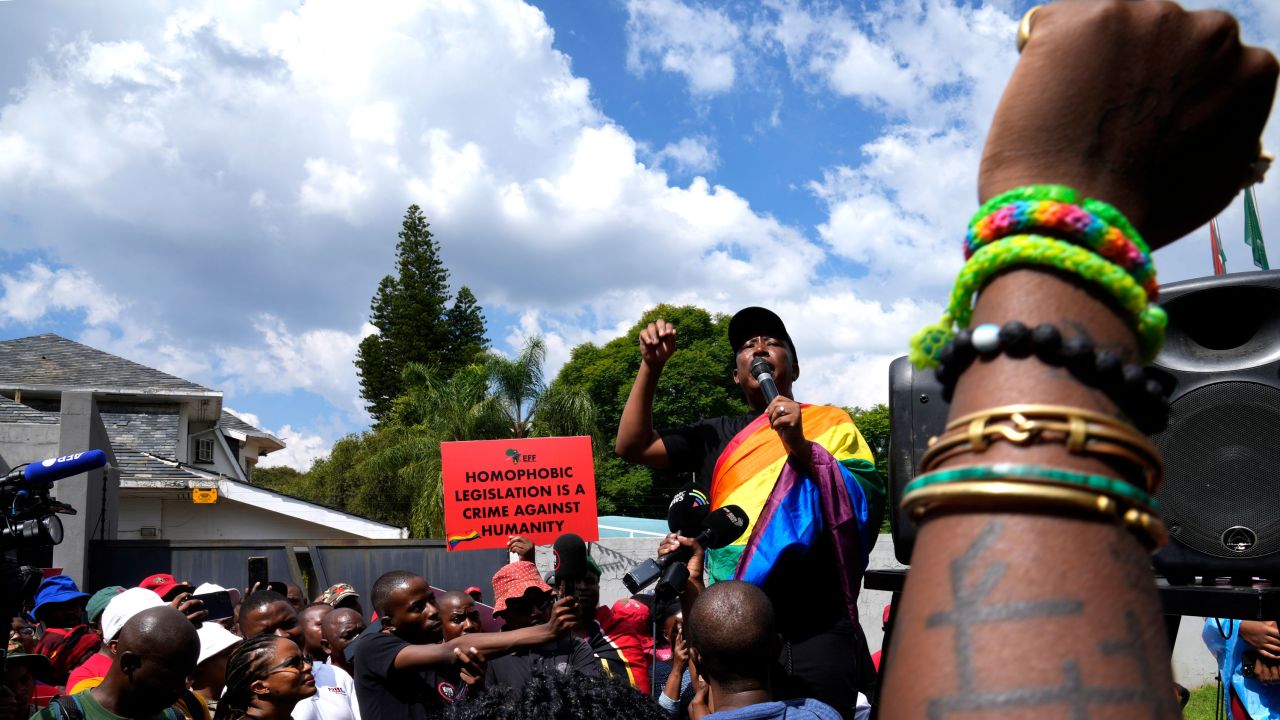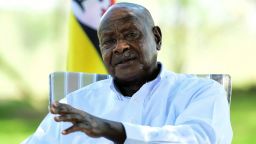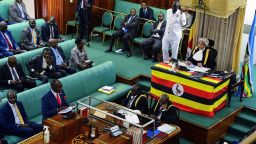Editor’s Note: Brett Bruen is the president of the crisis communications agency the Global Situation Room, Inc and teaches crisis communications at Georgetown University. He was the director of global engagement in the Obama White House and an American diplomat in Ivory Coast, Venezuela, Iraq and Madagascar. The views expressed here are his own. Read more opinion on CNN.
How do we get Uganda to change its draconian new anti-LGBTQ statute? The bill, passed by the country’s legislature and signed by President Yoweri Museveni, doles out the death penalty for “aggravated homosexuality,” which includes sex with a minor, incest and having sex while HIV positive. The law makes it illegal not to report the so-called perpetrators to the police, outlaws sex education for the gay community and calls for 20-year sentences for those engaged in “promoting” homosexuality (same-sex relations were already prohibited).

Many here in the United States have called on the Biden administration to quickly isolate and impose stiff sanctions on the government in Kampala and cut off aid to send a strong message of intolerance for these kinds of brutal moves, something US officials are threatening to do. On Monday, the State Department upgraded its travel advisory to add anti-LGBTQ legislation to its list of reasons urging Americans to reconsider traveling to the East African country.
Meanwhile, Rep. George Santos (R-NY) has introduced legislation that would deny funds to countries that criminalize or discriminate based on sexual orientation. “June is pride month, and the best way to celebrate the history and achievements of gay rights is to stand up to countries actively oppressing the LGBTQ community,” Santos told the publication The Hill this week. “We need to send a clear message that the United States will not offer federal aid to countries found to be violating the rights of individuals based on sexual orientation.”
But while punishments may temporarily provide us with a sense of having appropriately met the moment, in the long run the conditions faced by LGBTQ Ugandans and others around the globe are unlikely to improve because of sanctions.
Better would be to expand our efforts at education and engagement as the only way to address such an abhorrent edict.
US sanctions often do not have the desired effect, as we have seen in Russia, Venezuela and other African nations like Zimbabwe, and in many cases create more problems than they solve. In most instances in which they are applied, the measures fail to change a government’s calculus while driving the people further into poverty and creating even more opportunities for unscrupulous politicians to exploit them.
Serving as a US diplomat in sanctioned countries across Africa, from the Ivory Coast to Madagascar, I saw firsthand the challenges created by such punitive policies in response to human rights abuses and coups.
While in these situations we continued to provide lifesaving aid, the impact of the reductions in environmental and developmental programs that I observed was quite devastating. Meanwhile, American influence in the countries undoubtedly waned as we couldn’t meet with officials and were attacked daily by the pro-regime press, giving us less standing and access on critical issues like democracy and human rights.
The vacuums created by the US can also be filled by others. Unlike only a decade ago when I was serving overseas, these countries now have attractive alternatives to American aid. Russia, and particularly China, are expanding investments on the continent without the same strings attached.
While Washington demanded things like upholding the rule of law and moving toward democracy in exchange for investment, Moscow and Beijing are in most cases content merely to receive access to the countries’ natural resources and symbolic government support or even just silence on major global concerns.
The disadvantages of these ties to the United States are exponential, as increasing the dependence of countries like Uganda on Beijing and Moscow will likely lead to growing instability and a whole host of additional challenges. As the case of Venezuela has demonstrated, closer ties to authoritarian rulers can help foster increased repression, corruption and poverty.
But perhaps most importantly in this context, it actually serves to further erode LGBTQ rights around the world. Russian President Vladimir Putin and Chinese leader Xi Jinping have cracked down on gay rights as part of their authoritarianism. Putin in particular disparages Western powers for what he considers a radical woke agenda counter to traditional cultures.
Putin has used attacks on LGBTQ rights as a way to try to appeal to African leaders, suggesting Russia is more aligned with their conservative values. Slapping stiff sanctions on Kampala will reinforce this rhetoric and allow the anti-LGBTQ attacks he’s using to gain greater strength. Sadly, American evangelical organizations have also played a pivotal role in promoting anti-gay sentiment in the country.
Sanctioning Uganda would also appear to be hypocritical. The sub-Saharan nation is not the only one that imposes the death penalty for those convicted of having homosexual relations. Saudi Arabia, the United Arab Emirates and Brunei are among the strong American allies that have similarly despicable laws on the books.
Yet Washington has not imposed sanctions on them, instead preferring to quietly raise the issue from time to time, as I observed while working for the State Department. Based on the fact there has been little change in these countries’ attitude toward homosexuality, however, I don’t see that as a more effective response.
Instead, we should look at how to prominently elevate and sustain the focus on LGBTQ rights in our relations with Uganda as well as with these other nations.
First, we should speak out more forcefully and more often about our concerns. It needs to be more than the traditional diplomatic demarche, or formal presentation of our policy to another government. Instead, imagine if we sent personal appeals from both our leaders and Americans.
As we saw from the condemnation of the Ugandan law by Sen. Ted Cruz (R-TX.), there is bipartisan agreement on this issue. We could launch a campaign to deliver letters, videos and other messages of concern, as well as try to have conversations on a human rather than policy level.
This can extend into other influential individuals and institutions. We should invite more Ugandan musicians, artists and actors to collaborate with leading American LGBTQ cultural figures.
We can create an ongoing dialogue and the development of joint programs between religious leaders from around the world and those in the East African country. Similarly, it’s vitally important that we expand educational programs and exchanges for Ugandans.
Ultimately, our response to this horrific law should go beyond merely expressing outrage. Inspiring change and saving lives involves meeting these leaders where they currently stand, even if we find those engagements to be extraordinarily difficult and distasteful.
Personally, whether I was working with the friends and family of Iraqi leader Saddam Hussein in Iraq or with a mercurial regime in Eritrea, I found discussion-based diplomacy to produce more results than punitive policies. Walls are less likely to be erected. Trust can be established. Wisdom has a chance to take hold. Progress can be both pursued and attained.
Get Our Free Weekly Newsletter
- Sign up for CNN Opinion’s newsletter.
- Join us on Twitter and Facebook
We are reminded during Pride Month of how far we have yet to travel toward a truly just and free world. The last several years have seen far too many setbacks, both abroad and here at home.
Overcoming these old obstacles, along with addressing the new barriers built, requires some rethinking of our approach. As a recovering diplomat who has negotiated with the most intractable of world leaders, I firmly believe engagement, not isolation, is necessary if we want to make advances for members of the LGBTQ community in countries like Uganda.



